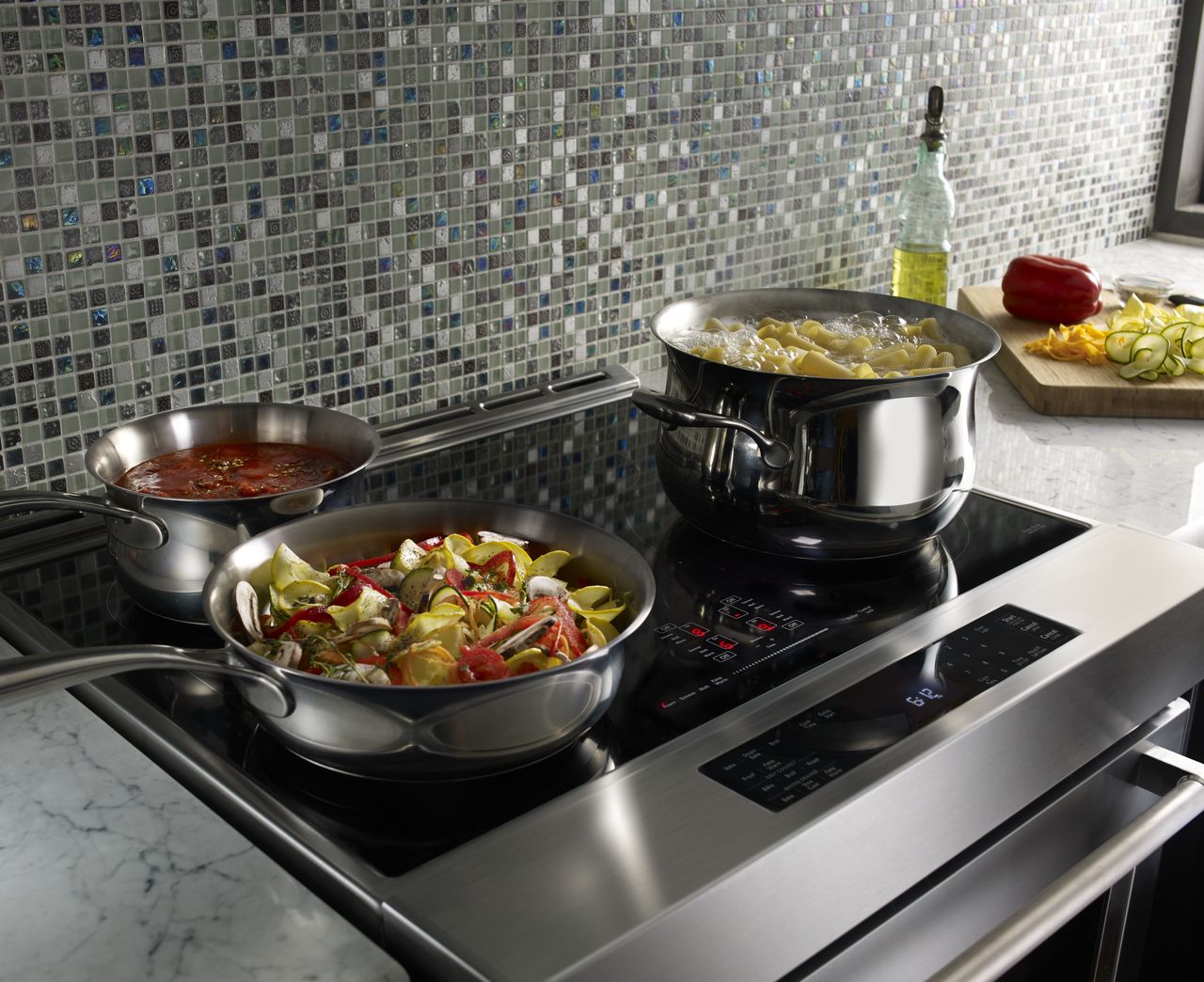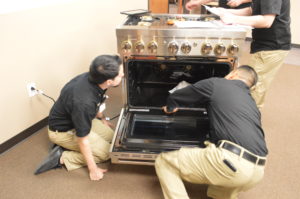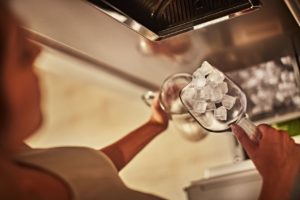Were you aware that cookware material plays a major role in how quickly your food cooks and how evenly it transfers heat to your food? If you didn’t know, well now you do. Below is a list of different materials found in your cookware and how to properly use each.
Aluminum
- Heats your food both evenly and quickly
- Suitable for all types of cooking
- Use a medium or heavy thickness for best results
- Could possibly leave aluminum residue on your glass cooktop, which is why we suggest cleaning your cooktop after every use. This prevents damage!
Cast Iron
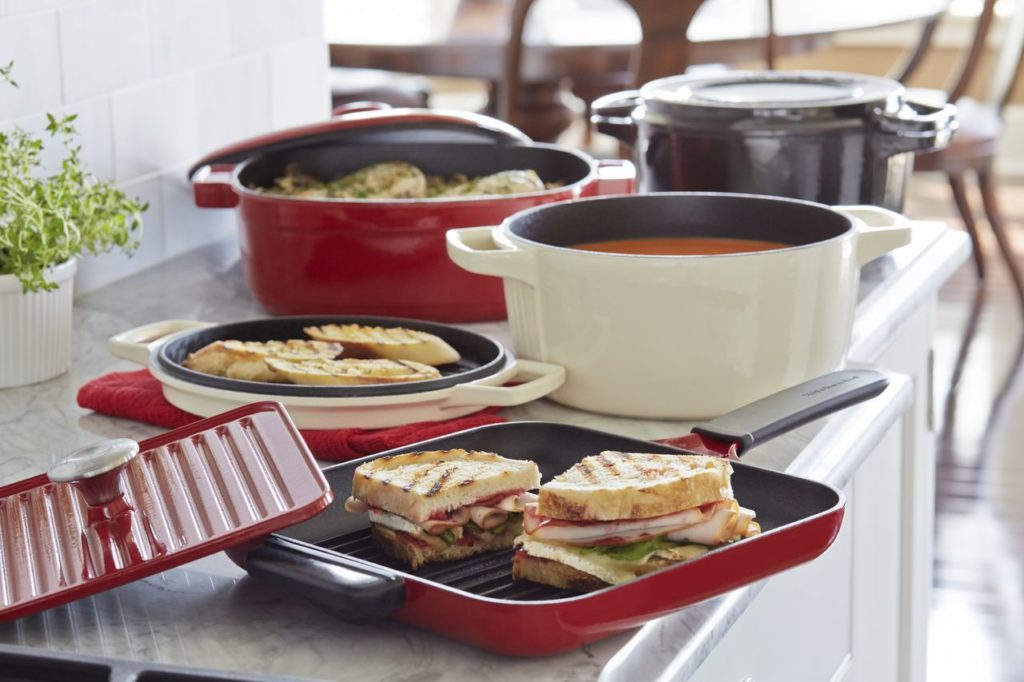
- This tends to heat more slowly but it does heat evenly
- Best for browning and frying foods
- Best for maintaining heat for recipes calling for slower cooking
Ceramic or Ceramic Glass
- Heats slowly and unevenly
- Ideal results are having your cooktop set on low to medium heat
- Has the potential to scratch your glass cooktop
- Follow Manufacturer’s Instructions
Copper
- Heats quickly and evenly
- Could possibly leave copper residue on your glass cooktop, which is why we suggest cleaning your cooktop after every use
- Could leave a permanent stain to your glass cooktop if it’s overheated
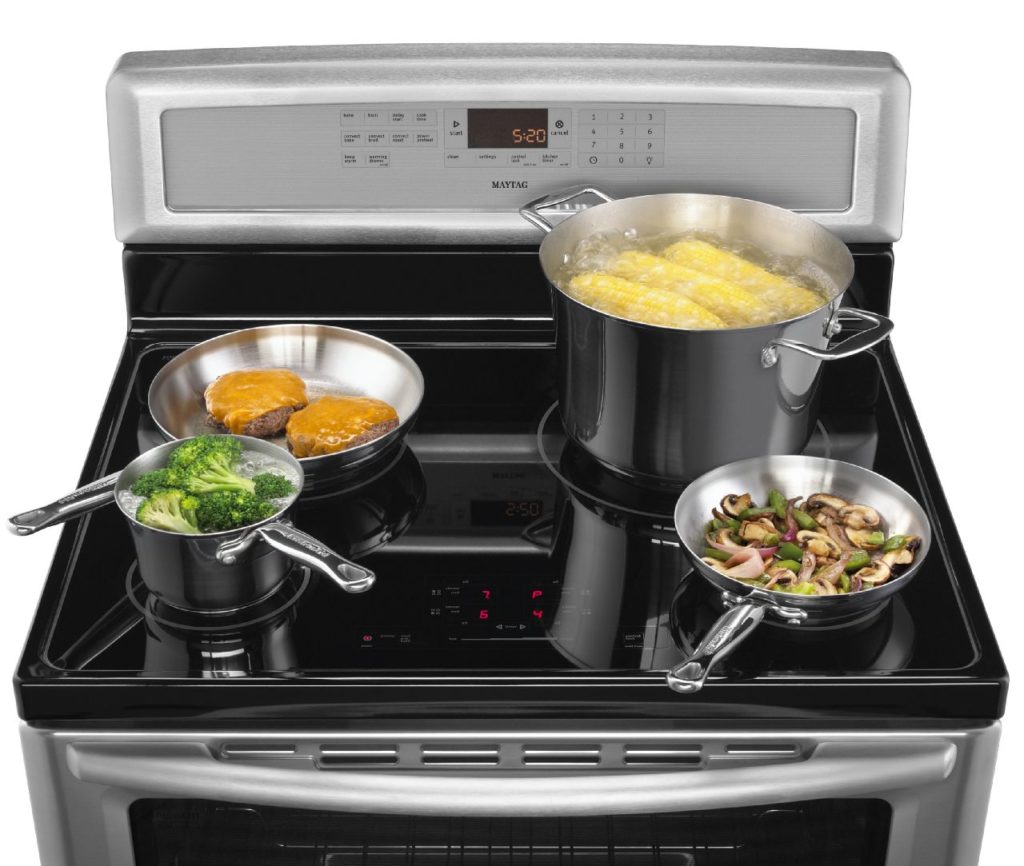
Porcelain Enamel-on-Steel or Cast Iron
- Same instructions as stainless steel or cast iron
- May bond to your glass cooktop if it’s overheated
Stainless Steel
- Heats quickly, yet unevenly
- A core or base of aluminum or copper on stainless steel can provide more even heating
As for all cookware materials, it is ideal to have a flat bottom, straight sides and a well fitting lid. Lastly, be sure to use cookware roughly the same size and the surface burner that you’re cooking on. This makes cooking your food more efficient and also is more energy efficient, saving your dollar bills. Sometimes a little bit goes a long way. If you’re having other difficulties with your cooktop, give us a call and let one of our trained professionals help you out! Thank you for letting our family help yours!


